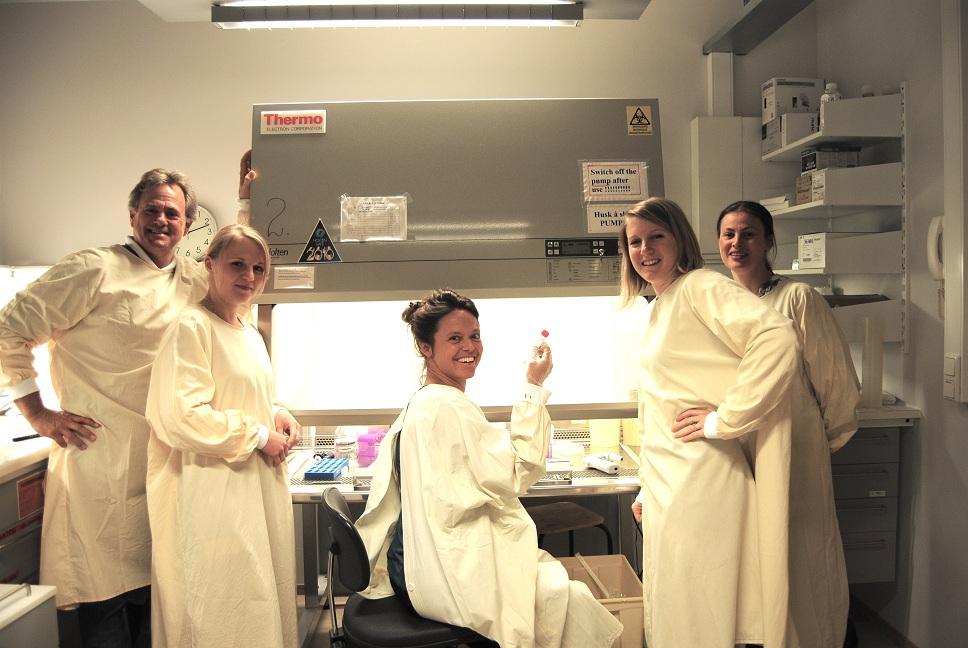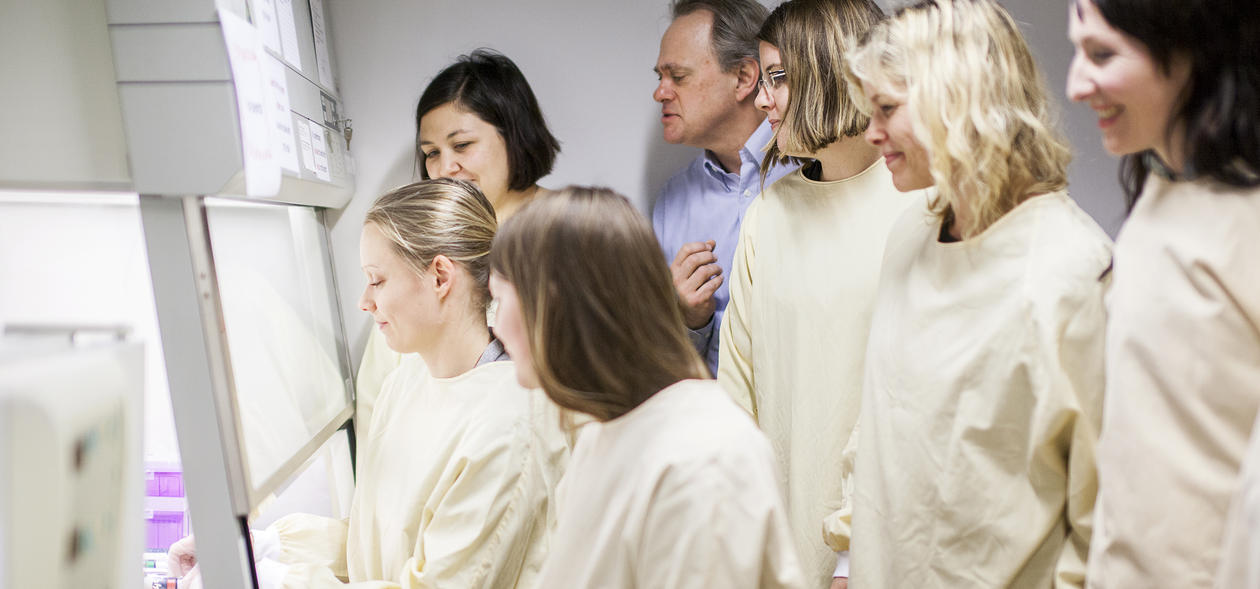Mechanisms of Tumor Cell Plasticity
The aim of Professor Lorens´ team is to understand the molecular mechanisms of acquired drug resistance.

Hovedinnhold
Research focus
Despite significant improvement in cancer therapy, most patients will not experience lasting benefit. Understanding why therapies fail and developing novel biomarkers and treatment paradigms to address these resistance mechanisms remains a central goal for cancer research. The Lorens group discovered that the receptor tyrosine kinase AXL is a key driver of acquired resistance to multiple cancer agents. By determining the molecular mechanism of AXL regulation of the tumor immune microenvironment, in concert with clinical trials using AXL targeting agents, a new paradigm to improve cancer treatment has emerged.
Subprojects and Important results
1. AXL regulates DNA sensing and Type 1 interferon responses in tumors: Aneuploid tumors are prone to activating the cytosolic DNA sensing pathway, comprising induction of type 1 interferons (IFN) with diverse effects on the innate and adaptive immune systems through antiviral effector molecules. Type 1 IFN responses in malignant cells or dendritic cells (DCs) are central mediators of response to immunotherapy.
The efficacy of chemotherapy harnesses the host immune response by inducing immunogenic tumor cell death and releasing adjuvant signals known as damage associated molecular patterns (DAMPs). AXL serves as an IFN-response checkpoint by blocking IFNAR1 and IFNAR2 signaling via suppression of cytokine signaling (SOCS1/3).
The group demonstrated that AXL kinase inhibition in combination with chemo-immunotherapy enhances type 1 IFN responses in different tumor immune contexts. The group provided the first evidence that AXL regulates type 1 IFN at the level of TLR activation in tumors, and AXL kinase inhibition enhanced type 1 IFN responses that correlated with increased infiltration of NK cells, CD4- and CD8-T cells into tumors. These results provide evidence that AXL inhibition leads to promotion of antitumor immune responses and better chemo-immunotherapy efficacy.
2. AXL targeting restores PD-1 blockade sensitivity of STK11/LKB1 mutant NSCLC through expansion of TCF1+ CD8 T cells: Mutations in STK11/LKB1 in nonsmall cell lung cancer (NSCLC) are associated with poor patient responses to immune checkpoint blockade (ICB). In mouse models, systemic inhibition of AXL resulted in increased type I IFN secretion from dendritic cells, restoring therapeutic response to PD-1 in tumors. NSCLC-affected individuals with identified STK11/LKB1 mutations receiving bemcentinib and pembrolizumab demonstrated objective clinical response to combination therapy. The conclusion is that AXL is a critical targetable driver of immune suppression in STK11/LKB1 mutant NSCLC.
Future plans
The group will focus on determining how AXL receptor signaling regulates acquired resistance to cancer therapy. The unique signal transduction of GAS6–AXL complexes will be studied using systems-level signal transduction analysis and high dimensional singlecell mapping of phenotypic-spatial features of the tumor microenvironment in preclinical models and cancer patient biopsy samples of the randomized phase II clinical trial (NCT02872259) to evaluate AXL targeting to improve immunotherapy efficacy in malignant melanoma.
PubMed Publications
See Lorens' PubMed publication list here.

